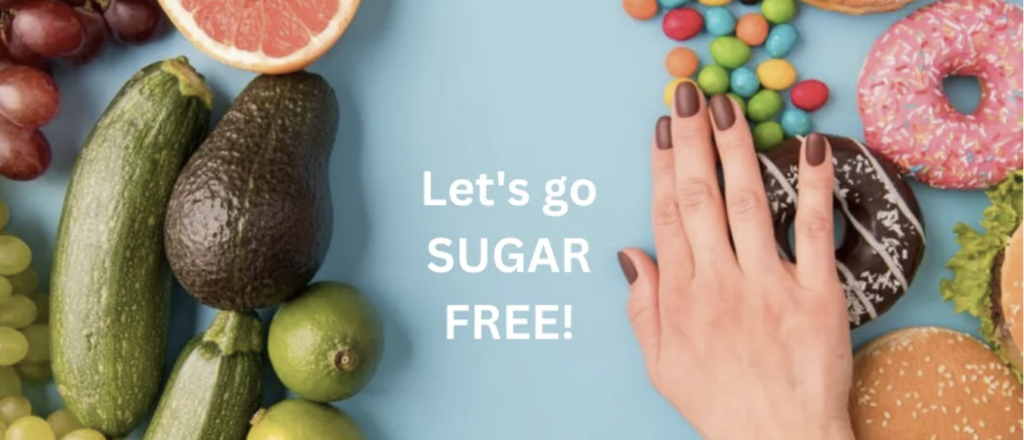
The Ultimate Guide to a Sugar-Free Diet: Delicious Foods to Savor
Are you considering adopting a sugar-free diet? Cutting out sugar can have numerous health benefits, including improved weight management, better dental health, stabilized energy levels, and reduced risk of chronic diseases such as diabetes and heart disease. However, transitioning to a sugar-free lifestyle can be daunting, as sugar is pervasive in our modern diet.
Fortunately, there are plenty of delicious and satisfying foods that you can still enjoy while on a sugar-free diet. From vibrant and crunchy salads to savory grain bowls and hearty protein-packed meals, there are endless options to tantalize your taste buds. Embracing a sugar-free diet doesn’t mean depriving yourself; instead, it’s an opportunity to explore new flavors and find a renewed appreciation for naturally sweet foods like fruits and vegetables.
In this comprehensive guide, we’ll dive into the world of sugar-free eating, providing you with practical tips, delectable recipes, and insightful strategies to make your transition to a sugar-free lifestyle seamless and enjoyable. Get ready to embark on a journey to better health and discover the multitude of delectable foods that await you on a sugar-free diet.
Understanding Sugar Cravings
Many people experience intense cravings for sugary foods and drinks. These cravings are driven by a variety of factors, including physiological, psychological, and environmental influences.
Physiological Factors
When you consume sugar, your brain releases dopamine and serotonin, neurotransmitters that are associated with pleasure and mood regulation. This leads to the “feel-good” sensation that many people crave. Additionally, eating sugar can trigger the release of endorphins, which act as natural painkillers and further reinforce the desire for sugary treats.
Psychological Factors
Emotional stress, boredom, and habit can also contribute to sugar cravings. Many people turn to sugary foods as a way to cope with negative emotions or to simply satisfy a habituated desire. Additionally, the widespread availability and marketing of sugary snacks can create a psychological dependence on these products.
Environmental Influences
The environment in which you live and work can heavily influence your sugar cravings. For example, being surrounded by easily accessible and prominently displayed sugary snacks can make it harder to resist cravings. Social situations and cultural practices can also play a role, as sugary foods are often associated with celebrations and gatherings.
Managing sugar cravings is a common challenge, but understanding the underlying factors can help you develop strategies to overcome them. From mindful eating to finding healthier alternatives, there are numerous approaches to curbing sugar cravings and fostering a balanced relationship with sweet foods.
The Impact of Sugar on Your Health
Sugar is a common ingredient in many of the foods and drinks that we consume on a daily basis. While it can make things taste better, it’s important to be aware of the impact that sugar can have on your health.
Consuming too much sugar can lead to a variety of health issues, including obesity, type 2 diabetes, and heart disease. It can also contribute to tooth decay and negatively impact your energy levels.
When you consume sugar, your body breaks it down into glucose, which provides a quick source of energy. However, consistently high levels of glucose in the blood can lead to insulin resistance and ultimately diabetes.
With the prevalence of sugar in so many foods and drinks, it can be challenging to reduce our sugar intake. However, being mindful of what you eat and drink, and opting for healthier alternatives, can go a long way in mitigating the negative effects of sugar on your health.
By understanding the impact of sugar on your health and making conscious choices to limit your consumption, you can take steps towards improving your overall well-being.
Healthy Alternatives
When it comes to making healthy choices, there are plenty of alternatives to consider. Whether you’re looking to switch up your diet or incorporate new habits into your lifestyle, small changes can make a big difference. Here are a few options to consider:
1. Snacking
Instead of reaching for the usual bag of chips, try keeping fresh fruit, unsalted nuts, or cut-up vegetables on hand for a satisfying snack. These options are not only delicious, but also provide essential nutrients to keep you going throughout the day.
2. Hydration
Sugary drinks can be tempting, but opting for infused water, herbal teas, or sparkling water with a splash of fresh juice can be a healthier choice. Staying hydrated is key to maintaining overall well-being, and these alternatives can make it easier and more enjoyable.
3. Cooking
When preparing meals, consider using alternatives to traditional ingredients. For example, cauliflower rice or zucchini noodles can be substituted for grains to reduce carb intake. Experimenting with different herbs and spices can also add flavor without relying on extra salt or sugar.
By making small yet meaningful changes like these, you can enhance your journey towards a healthier lifestyle.
The Best Foods to Eat When Giving Up Sugar
Giving up sugar can be a challenging but incredibly rewarding decision for your health. To make the transition smoother, it’s important to focus on consuming whole foods that are naturally low in sugar and high in nutrients. Here are some of the best foods to incorporate into your diet when giving up sugar:
1. Fresh Fruits
- Incorporating fresh fruits, such as berries, apples, and pears, can satisfy your sweet cravings while providing essential vitamins, minerals, and fiber.
2. Non-Starchy Vegetables
- Vegetables like leafy greens, broccoli, cauliflower, and bell peppers are excellent choices as they are low in sugar and rich in nutrients.
3. Nuts and Seeds
- Nuts and seeds are great sources of healthy fats, protein, and fiber. They make for a satisfying snack and can help control cravings.
4. Whole Grains
- Opt for whole grains like quinoa, brown rice, and oats. These complex carbohydrates provide lasting energy without causing blood sugar spikes.
5. Lean Proteins
- Prioritize lean proteins such as chicken, turkey, fish, and tofu to support muscle health and keep you feeling full and satisfied.
6. Greek Yogurt
- Greek yogurt is a fantastic source of protein and probiotics. Choose plain, unsweetened varieties and add your own fresh berries for natural sweetness.
By focusing on these wholesome foods, you can successfully navigate the process of giving up sugar while still enjoying delicious and satisfying meals. Remember to read food labels carefully and be mindful of hidden sugars in packaged products.



